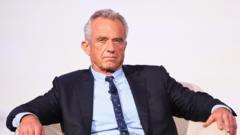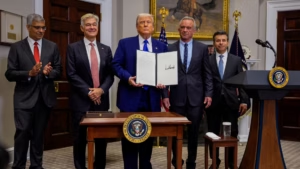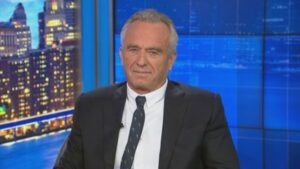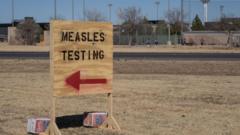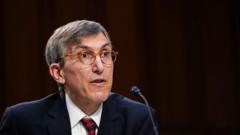The proposed ban on pharmaceutical ads might expose long-hidden truths about the pharmaceutical industry and reshape corporate media dynamics.
**RFK Jr. Plans to Ban Pharmaceutical Ads, Sparking Industry Debate**
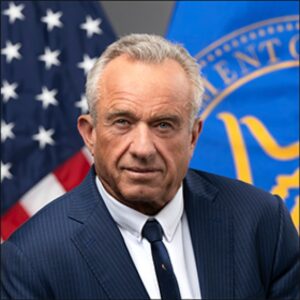
**RFK Jr. Plans to Ban Pharmaceutical Ads, Sparking Industry Debate**
Health and Human Services Secretary's proposal could lead to a major transformation in media relations with Big Pharma.
According to multiple reports, Health and Human Services Secretary Robert F. Kennedy Jr. is gearing up to advocate for a nationwide prohibition on pharmaceutical advertisements on television. This ambitious initiative could signify a monumental change in how the pharmaceutical industry interacts with both public health and media, potentially aligning the U.S. with several countries that have similar restrictions on direct-to-consumer pharmaceutical advertising.
Kennedy has long been outspoken about the excessive influence of Big Pharma on public health narratives and media. Should this ban come to fruition, it may lead to significant shifts within the media landscape. Political commentator Liz Wheeler highlighted what she sees as two paramount consequences of this proposed ban.
Firstly, she argues that corporate media would face severe financial repercussions. According to Wheeler, the mainstream media is significantly supported by advertising dollars from the pharmaceutical industry, which she characterizes as a "fake business." Without these substantial ad investments, she warns networks could suffer major financial setbacks, resulting in layoffs, firings of prominent anchors, and possibly even complete shutdowns.
Secondly, Wheeler believes that this policy might pave the way for authentic investigative journalism. With the financial benefits of pharmaceutical ads stripped away, the press may finally confront and report on issues like pharmaceutical corruption, vaccine safety, and the relationships between major medical associations and regulatory bodies such as the CDC, FDA, and AMA.
“It was a money laundering scheme all along to keep reporters silent about the abuses coming out of pharma,” Wheeler claimed, expressing hope that such a ban could reveal the interconnectedness of Big Pharma and corporate media, allowing for a wave of unfiltered reporting that has long been suppressed in the public sphere.
Kennedy has long been outspoken about the excessive influence of Big Pharma on public health narratives and media. Should this ban come to fruition, it may lead to significant shifts within the media landscape. Political commentator Liz Wheeler highlighted what she sees as two paramount consequences of this proposed ban.
Firstly, she argues that corporate media would face severe financial repercussions. According to Wheeler, the mainstream media is significantly supported by advertising dollars from the pharmaceutical industry, which she characterizes as a "fake business." Without these substantial ad investments, she warns networks could suffer major financial setbacks, resulting in layoffs, firings of prominent anchors, and possibly even complete shutdowns.
Secondly, Wheeler believes that this policy might pave the way for authentic investigative journalism. With the financial benefits of pharmaceutical ads stripped away, the press may finally confront and report on issues like pharmaceutical corruption, vaccine safety, and the relationships between major medical associations and regulatory bodies such as the CDC, FDA, and AMA.
“It was a money laundering scheme all along to keep reporters silent about the abuses coming out of pharma,” Wheeler claimed, expressing hope that such a ban could reveal the interconnectedness of Big Pharma and corporate media, allowing for a wave of unfiltered reporting that has long been suppressed in the public sphere.







